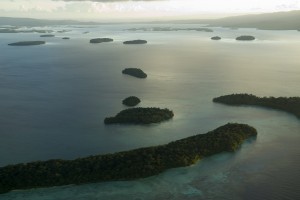Heard of the Yes Men? They are the incredibly straight-faced and gutsy duo that dare to go on the BBC TV and Radio, claiming to be from Dow Chemicals and announcing that Dow will compensate the victims of the Bhopal, India catastrophe with $12 billion from selling all assets related to Union Carbide Corp. Dow purchased Union Carbide after the gas leak in Bhopal killed tens of thousands and continues to contaminate ground water in the area, probably under the assumption that their legal team could avoid paying the billions in restitution that is due.
 Unfortunately, their routine is merely a hoax, disappointing hundreds of thousands of uncompensated victims. Likewise, their stunt at the Copenhagen Climate Summit in December of last year gave everyone a glimpse of hope that the only country to abandon the Kyoto Protocol and home to the largest single source of industrial greenhouse gas emissions – Canada – was actually going to change its climate policy.
Unfortunately, their routine is merely a hoax, disappointing hundreds of thousands of uncompensated victims. Likewise, their stunt at the Copenhagen Climate Summit in December of last year gave everyone a glimpse of hope that the only country to abandon the Kyoto Protocol and home to the largest single source of industrial greenhouse gas emissions – Canada – was actually going to change its climate policy.
No such luck. Copenhagen went out with a fizzle as the Parties “took note” of the Copenhagen Accord. An ambivalent reference to a vague document.
Since then, China and India have associated themselves with the Copenhagen Accord. There are still many nations which have not given any indication whether they will engage with the Copenhagen Accord. The US-CAN website has an excellent table of which countries are on board with the Copenhagen Accord.
The most recent country to not endorse the Copenhagen Accord was the Cook Islands. In their letter of non-association to the UNFCCC, the Cook Islands identified the lack of clarity surrounding the “Technology Mechanism,” referenced in paragraph 11 of the Copenhagen Accord as being one of four major issues it found with the Accord. In particular, the Cook Islands noted:
“[p]ast experience with the Expert Group on Technology Transfer has shown that mitigation technologies have received far more attention [than adaptation technologies’].”
As a small island developing state, the Cook Islands were one of several other island nations pushing for a 1.5 degree target at Copenhagen that would have reduced the likelihood of sending much, if not all, of their country underwater, which is predicted result from the 2 degree target under the Copenhagen Accord. Many of the other small island developing countries have yet to respond (see US-CAN table above) to the Accord.
The technologies and knowledge for adapting to climate change, which the Cook Islands accurately state as not receiving adequate attention, include technologies and knowledge such as:
- Medicines for combating increased incidence of vector borne diseases such as malaria;
- Water technologies, for economizing usage of freshwater, filtration & purification methods and desalination;
- Infrastructure technologies and knowledge for minimizing the disruptive effects of increasingly severe floods, storms and droughts;
- Crops for high-saline and low water growing conditions; and
- Advance warning systems for oncoming storms and pandemic spread of diseases.
These are what the most vulnerable populations will require to avoid the loss of human rights, such as the rights to life, food, water, health and adequate housing. CIEL has articulated some practical steps for implementation of Human Rights and Climate Change law. Many of these steps, along with integrating a rights-based approach into the Technology Mechanism of the Copenhagen Accord would help considerably in addressing the concerns of those countries and populations most vulnerable to the effects of climate change.
Another potential tool is to lead by example. The small-island developing state of the Maldives is doing exactly that. While being one of the most progressive countries in examining the implication of climate change on human rights, they have associated themselves with the Copenhagen Accord AND are also setting the most ambitious mitigation target of any country: 100% reduction in greenhouse gas (GHG) emission by 2020. In other words, the island nation is putting its words into action, and promising to be carbon neutral in ten years.
Whether or not countries associate themselves with the Copenhagen Accord, arguments on all sides of the climate debate are only strengthened with stronger national commitments to GHG reductions. Hopefully, other countries will follow the Maldives’ lead. Perhaps the Yes Men can use their trickery to help shame all other countries and the private sector, not just Canada, into taking this path towards solving the problem, that which was forged by the Maldives.
Originally posted on March 19, 2010.
